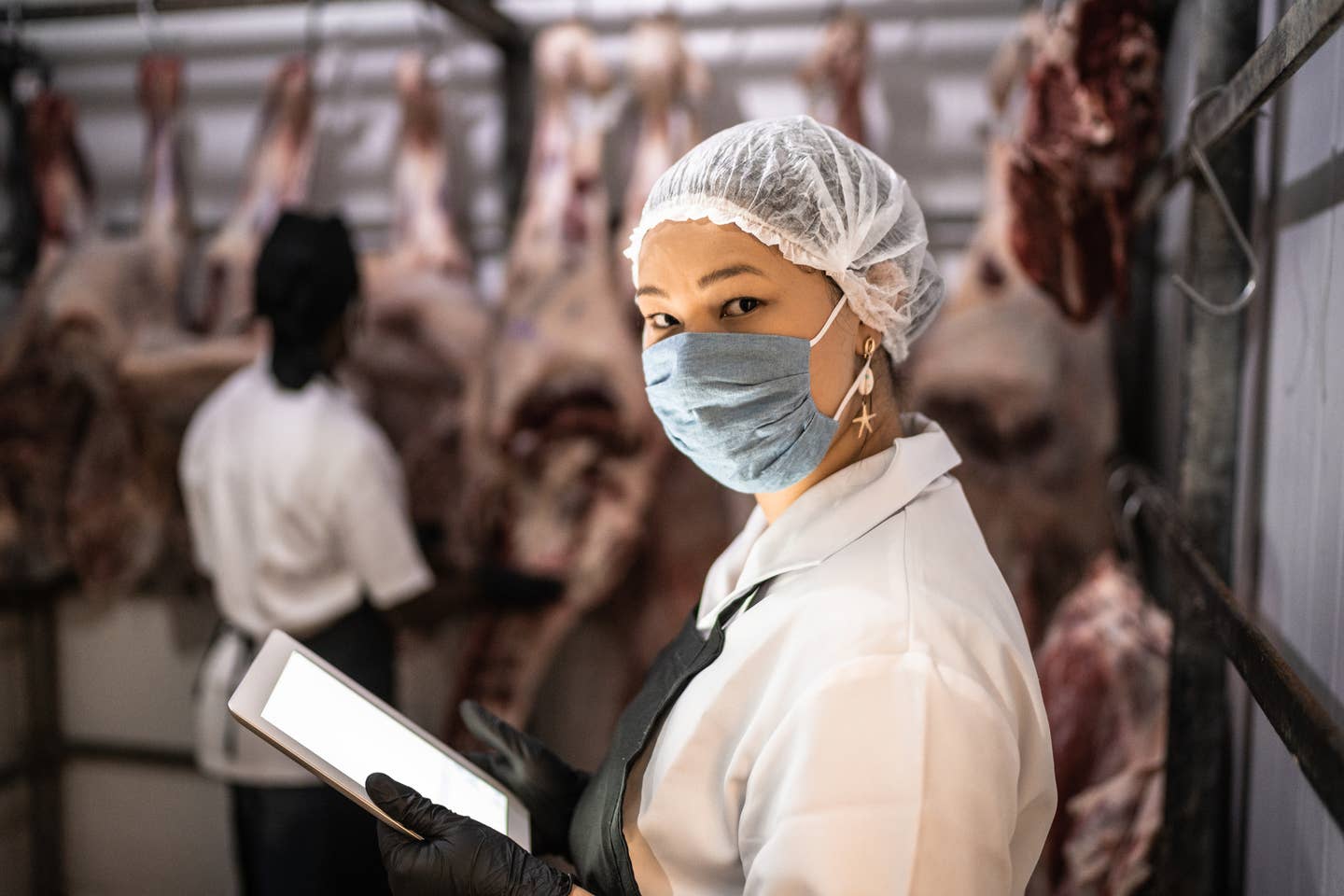
Doctors Sue USDA to Test Meat and Poultry for Transmission of COVID-19
It's no secret that meat plants have been hotspots for the coronavirus, and now the Physicians Committee for Responsible Medicine (PCRM) has sued the government, urging the USDA to test meat for COVID-19 and warn consumers that the meat they eat could be contaminated with the coronavirus. The PCRM already called on the U.S. Department of Agriculture to 'require grocery stores to warn consumers of the potential presence of COVID-19 on meat and poultry products' via a petition back in May. Now the non-profit organization, representing more than 12,000 doctor members, wants the government to protect consumers from potential transmission through meat.
With over 34,000 meat processing workers having tested positive for COVID-19 in a total of 384 plants across 39 states, with no less than 163 deaths counted as caused by the virus –and possibly more as numbers are not reliably reported–there is a possibility that the meat and poultry that reaches store shelves is carrying the virus with it. So it makes sense that to protect consumers, the USDA should require meat companies to test the meat, issue warnings, and inform the public, according to the lawsuit filed against the USDA by PCRM.
"Plant workers who are asymptomatic may still be viral carriers," says Neal Barnard, MD, president of the Physicians Committee. "Because these workers directly handle meat and poultry products, and because the COVID-19 virus is easily airborne, transmission of the virus to the products they handle is likely, which means transmission of the virus into people's homes is likely."
PCRM has petitioned for warning labels on cheese that it increases breast cancer risk
This is the same group that has urged the government to warn the public about the estrogens in cheese, and add warning labels to dairy cheese that consumption is associated with an increased risk of Breast Cancer. And it's the same group that has urged the USDA to reduce the daily recommended value of meat and dairy when it reissues its dietary guidelines later this year. But this time, without wanting to sound alarmist, their lawsuit is making consumers' ears prick up and pay attention since it makes logical sense that a sneeze, on meat, can land particles containing virus on warm flesh, which then gets wrapped in airtight plastic, refrigerated and shipped in a way that could theoretically at least, keep the virus active and alive when it lands in your supermarket and eventually on your plate.
As cases of the virus continued to rise among meat plants back in late May and throughout June, the plants were forced to shut down, meat shortages loomed, and no less than Senator Corey Booker and Joaquin Phoenix, the meatpackers' union and the Humane Society all entered the fray, with a lawsuit against the USDA that with the government forcing meat plants to reopen would put workers at risk, since not enough precautions were being taken to protect the health of meatpackers forced back on the line, standing close to one another and spreading the virus anew.
Senator Booker introduced a law that would ban factory farming called the Farm System Reform Act (FSRA), which strives to "place a moratorium on large concentrated animal feeding operations." The bill also will strengthen a law from 1921 that protects workers and farmers and also require labels to inform consumers as to where their meat was packaged (presumably to protect meat-eaters from harmful contaminants). Meanwhile, Phoenix offered workers a way to step forward as whistleblowers on unsafe practices that were both risky to humans and inhumane to animals within plants that were speeding up production and putting everyone at risk.
Now the PCRM has stepped in to take these efforts a step further and force the government to test meat for traces of the virus, both at the packaging site and in our supermarkets. Their point is that we don't know enough about what temperature of cold or hot kills the virus, so though you may freeze meat, virus can still survive that process, and while cooking should kill it, we don't know if rare meat could allow live virus particles to enter our system.
Meat Sales are Down and Demand for Plant-Based Alternatives Are On the Rise
Since the start of the pandemic back in March, meat sales have fallen as sales of plant-based foods are on the rise, according to trade groups. One reason is that consumers are nervous about what's in the food supply, and they have been reading studies and research that shows a diet rich in meat increases inflammation and boosts lifetime risk of heart disease, type 2 diabetes, and obesity, which in turn can increase risk of severe symptoms from COVID-19.
Inflammation, diabetes, obesity, and hypertension are all risk factors for the worst cases and most life-threatening symptoms of COVID-19, whereas a plant-based diet helps people lose weight, lower chronic inflammation, and keep risks of weight-related diseases down.
The virus may be able to survive extreme temperatures of freezing and heating
Studies have shown that 'infectious viruses can survive both refrigeration and freezing, according to PCRM, which points out that "meat companies do not routinely test the extent to which meat products are contaminated with the virus." The group of doctors add that "researchers have not specifically tested the temperature at which meat and poultry products would have to be heated" to kill all the COVID-19 virus in or on the meat.
Neal Barnard, MD, president of the Physicians Committee also pointed out that even as the virus appears to abate: "Plant workers who are asymptomatic may still be viral carriers."
The Physicians Committee for Responsible Medicine openly advocates for a plant-based diet. To read the press release of their lawsuit, go to the PCRM.org website
More From The Beet






